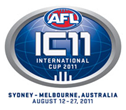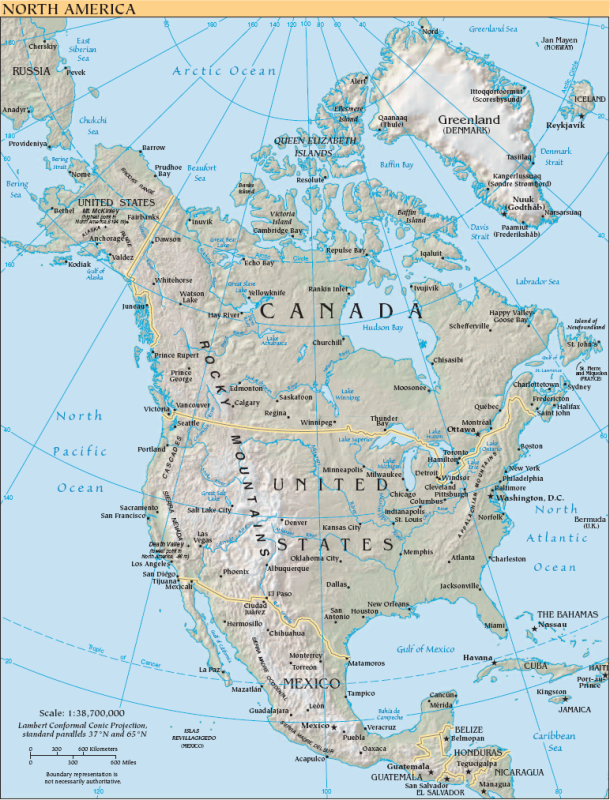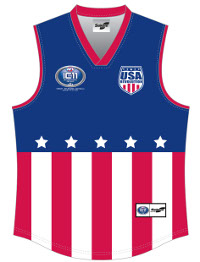
The US national team, the American Revolution or "Revos" as they are affectionately known, are heading to Australia to take on the best teams in the world in the Australian Football International Cup. In 2008 they finished seventh; back in 2005 the Revos finished a very respectable third after beating 2002 winners, Ireland twice.
With the top nations powering ahead in their footy programs, can the Revos wind back the clock and capture a top four spot? Up against fast opposition they've selected for speed whilst still fielding an experienced side, in part due to the demographics of footy in the US.
The Coach
The Revos are coached by former Baltimore Washington Eagles coach Matt Bishop who is originally from Maryborough, Victoria; his playing career has included matches with clubs in country Queensland and New South Wales, as well as Brisbane and Sydney. In 2004 was appointed coach to the Manly Warringah Wolves Reserve Grade team while continuing to play with the First Grade side. During his time with clubs in Brisbane, Sydney and Washington, D.C., Matt has been deeply involved with club administration as well as playing and coaching. Matt held many administrative positions and has been recognized by the clubs for his off-field contributions.
Matt joined the Eagles in 2005 and was appointed head coach in 2006. During 2006, the Eagles won the Division 2 National Championship. In 2007 the Eagles continued their ascension to one of the elite teams in the country by going undefeated in and winning the Eastern Australian Football League ("EAFL"). In 2008 Matt took on an assistant coaching role with the Eagles. The Eagles continued their successful run by again going undefeated in and winning the EAFL title. During the 2008 USFooty National Championships, the Eagles again played in Division 1, making the final. Matt now resides in Sacramento, CA with his wife Amy. They are both working to establish a team in Sacramento as well as becoming involved in the Golden Gate Australian Football League in San Francisco.
The Country and Australian Football
The United States has a population of over 300 million people. The USAFL, the national body for Australian Football, began in 1997. There are some around 32 clubs across the country (and subsets of those teams under the guise of “metro” footy and and women’s teams) the annual National Championship Tournament may still be the biggest amateur Australian football carnival in the world.
Probably the hardest thing about bringing the Revolution team to the International Cup is dealing with the huge size of the United States. Players are almost evenly distributed across the USAFL's three regions, the East, Central and the West. And bringing them all together is a difficult and expensive task.
Strengths and Weaknesses
The Revolution will probably bring one of the biggest and most athletic teams. They will be physical and skilled but there will be questions about their pace carrying over from previous tournaments. As always expect them to be big on voice and teamwork, to be hard at the ball and tackle ferociously.
Their biggest weaknesses are likely to be their decision making, given some inexperienced players and few opportunities to play together. Last time round they were seen to be a bit too big and slow compared to the smaller pacey sides of Nauru and South Africa. Assistant coach Jason Becker told us that a review of the team's performance at the 2008 International Cup concluded that the 7th placing resulted due to several factors including the size balance and lack of pace. “Others included the age of the squad which is predominately determined by the age that Americans pick the sport up; also the cost involved to participate and of course older players are generally better situated to deal with this and finally; the time players can take off from work. On that last point the average American receives 10 days annual leave per year unless you have worked for a company longer which, in turn, usually means the player is older. Since 2008 we have held various training camps and included several objective measures around speed, fitness and recovery specifically, in addition to skills. Also, we devised plans to try and raise funds and reduce costs so that younger players could participate. The length of the tournament is an issue that was not in our control and as result a few players dropped out or cannot attend the entire tournament. In a nutshell, yes speed was a deliberate focus during selection and the team speed we have in 2011 is the best we've had to date.”
So what does Becker think are the advantages of the 2011 squad’s makeup? “In my experience, the US team has never been beaten on effort or toughness. We have worked to improve decision-making, team coordination and general flow. I think the makeup of the 2011 squad is an improved blend of experience and mobility.”
In answer to our criticism noting that the average age is quite high relative to other teams he added “First of all, the average age is skewed a bit because we have listed a couple of staff (Jason Becker & Matt Jagger) as eligible in an emergency capacity. Our actual average age has come down (27), and will continue to drop in future years as the code grows and new players are discovered and come up through the ranks. The difficulties described in the first answer are the reason why it is not easy to reduce this average quickly.”
Players to Watch
Bryan Dragus - Bryan has only played the game for three years but picked it up quickly winning the Best & Fairest for his first club, the Golden Gate Roos (San Francisco). In the following year he travelled to Brisbane and played a season with the Western Magpies in the QAFL. Bryan is very agile for his height and will be a valuable contributor to the team at centre half forward and in the ruck.
Noor Jehangir - Noor, who is of Pakistani descent, first played in 2008 and has quickly become known for his speed and penetrating kick. Both these assets will be valuable in breaking the lines of the opposition.
Form Guide
In 2008 the US easily defeated Denmark, China and Japan in Melbourne but went down to Nauru and South Africa in Warrnambool. In 2005, the Revos finished third with two wins over the 2002 Champions Ireland. They lost to Runner's Up PNG by a solitary point, but went down to the eventual winners, New Zealand by 32 points in the First Semi Final.
With Canada their only International opponent since the last International Cup it is hard to gauge any change in strength of the US team. Unfortunately due to the way the seeding from the previous tournament panned out the US will again play Canada in the opening day of the tournament. Assistant coach Becker saying “Canada always provide us with a good match and we look forward to playing them in the first round. As far as playing against other teams between international cups, I think any team benefits from playing against diverse, high-level competition. It would be great to get more games in against a variety of squads.” We hope to see more of that in future.
Bottom Line
This year the Revolution have stated they are “looking for at least a top 6 finish”, scaling back expectations from previous years but Assistant Coach Becker told us “Our goals are tiered and our base level is to obviously improve upon our 2008 finish. We believe we are a top 4 team and would definitely love to make the final. Anything can happen on the day...”
All things considered we can see the US having a tough battle with Canada that could fall either way first up – with the short match format meaning that the team that gets the early jump could win. The Peace Team should hold no fears for the Revos who will advance to Division 1. My personal prediction is that we would then see them reach their minimum satisfactory result of 6th.






 RSS news
RSS news Twitter
Twitter Facebook
Facebook